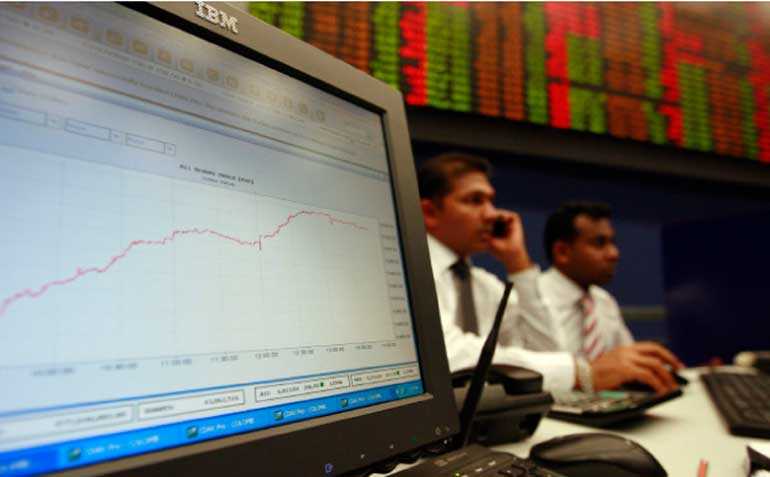Monday Feb 23, 2026
Monday Feb 23, 2026
Saturday, 5 October 2019 00:10 - - {{hitsCtrl.values.hits}}

REUTERS: Sri Lanka’s stocks recovered on Friday from a more than 10-week closing low hit in the previous session, while the rupee finished steady ahead of a key court decision on the presidential frontrunner Gotabaya Rajapaksa.
Investors were worried about political uncertainty after Sri Lanka’s appeal court set up a three-judge panel on Monday to hear a petition challenging the citizenship of presidential nominee Gotabaya Rajapaksa, which could have disqualified the former Defence Chief from the 16 November election, stockbrokers said.
After the market closed, Sri Lanka’s Appeal Court dismissed the legal case challenging Rajapaksa’s Sri Lankan citizenship, removing a major barrier he faced in contesting the 16 November poll.
The benchmark stock index ended 0.22% firmer at 5,689.90, rising from its lowest level since 22 July hit on Thursday. The bourse fell 1.42% this week. So far this year, the index has dropped 6%. The index had risen in a couple of sessions last week, after the Central Bank said on 24 September that the Monetary Board had ordered banks to reduce interest rates on all loans and advances by at least 200 basis points by 15 October.
Equity market turnover was Rs. 558.7 million ($3.08 million), less than this year’s daily average of about Rs. 657.2 million. Last year’s daily average was Rs. 834.0 million. Foreign investors were net sellers of Rs. 227.3 million worth of shares on Friday, extending the year-to-date net foreign outflow to Rs. 3.1 billion of equities, according to index data.
Meanwhile the rupee ended steady at 181.35/50 per dollar compared with Thursday’s close of 181.30/70.The International Monetary Fund cut its forecast for Sri Lanka’s 2019 economic growth to 2.7% from 3.5%, as the Easter Sunday attacks on hotels and churches earlier this year dented tourism and broader business activity. Foreign investors bought government securities on a net basis for the first time in seven weeks, buying Rs. 522 million worth of government securities. The foreign outflows, which are one of the major reasons behind the rupee’s recent weakness, may not abate until after a Parliamentary Election in 2020, some analysts said. The Central Bank does not release foreign trade numbers on a daily basis, but weekly data in the past four weeks has shown a steady outflow. Sri Lanka has seen a net foreign outflow of Rs. 54.8 billion through 2 October, according to Central Bank data.